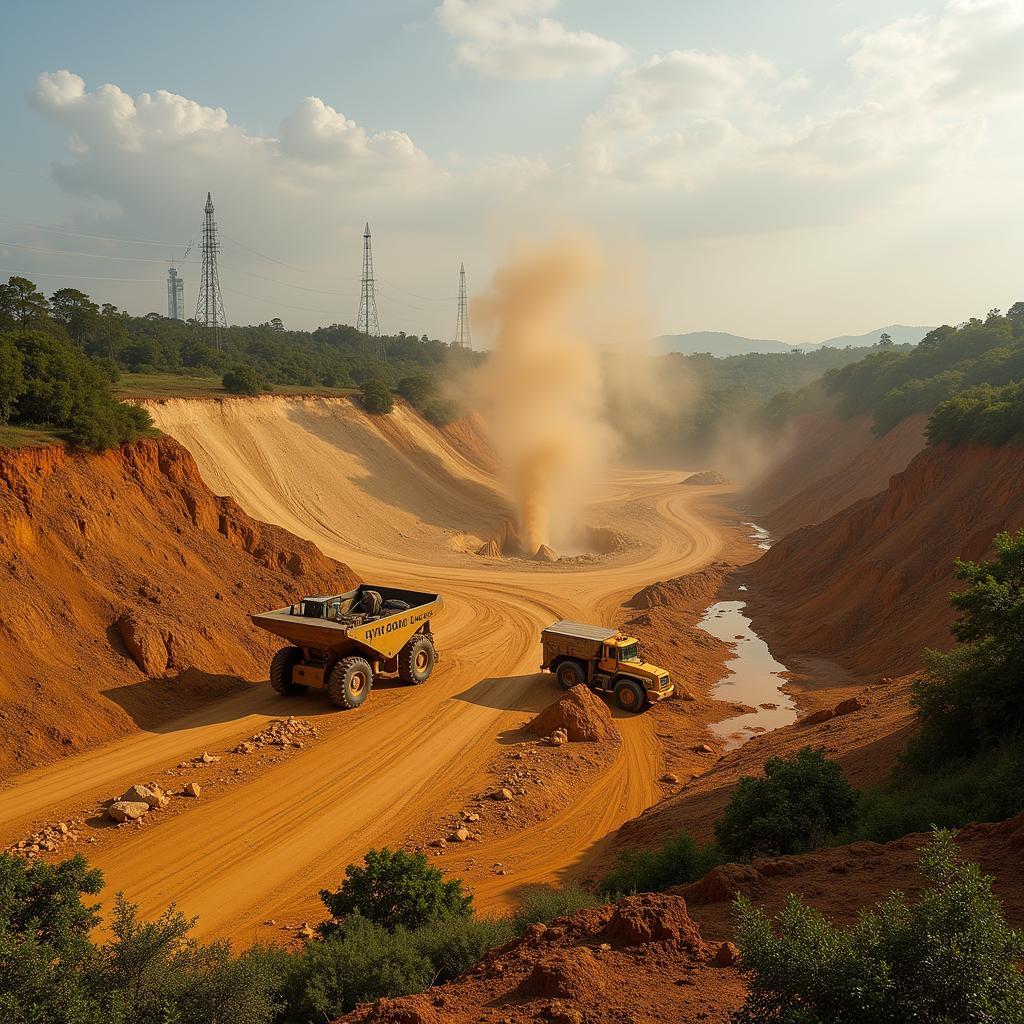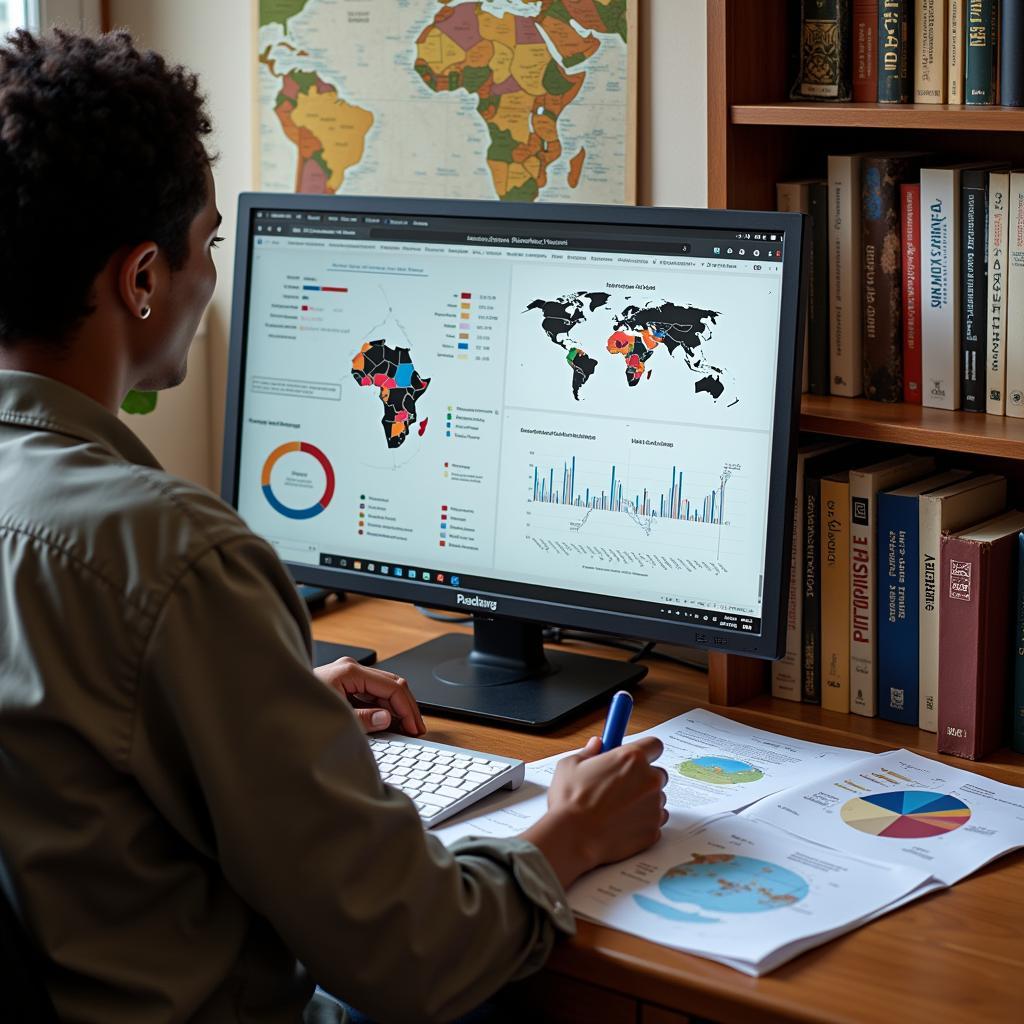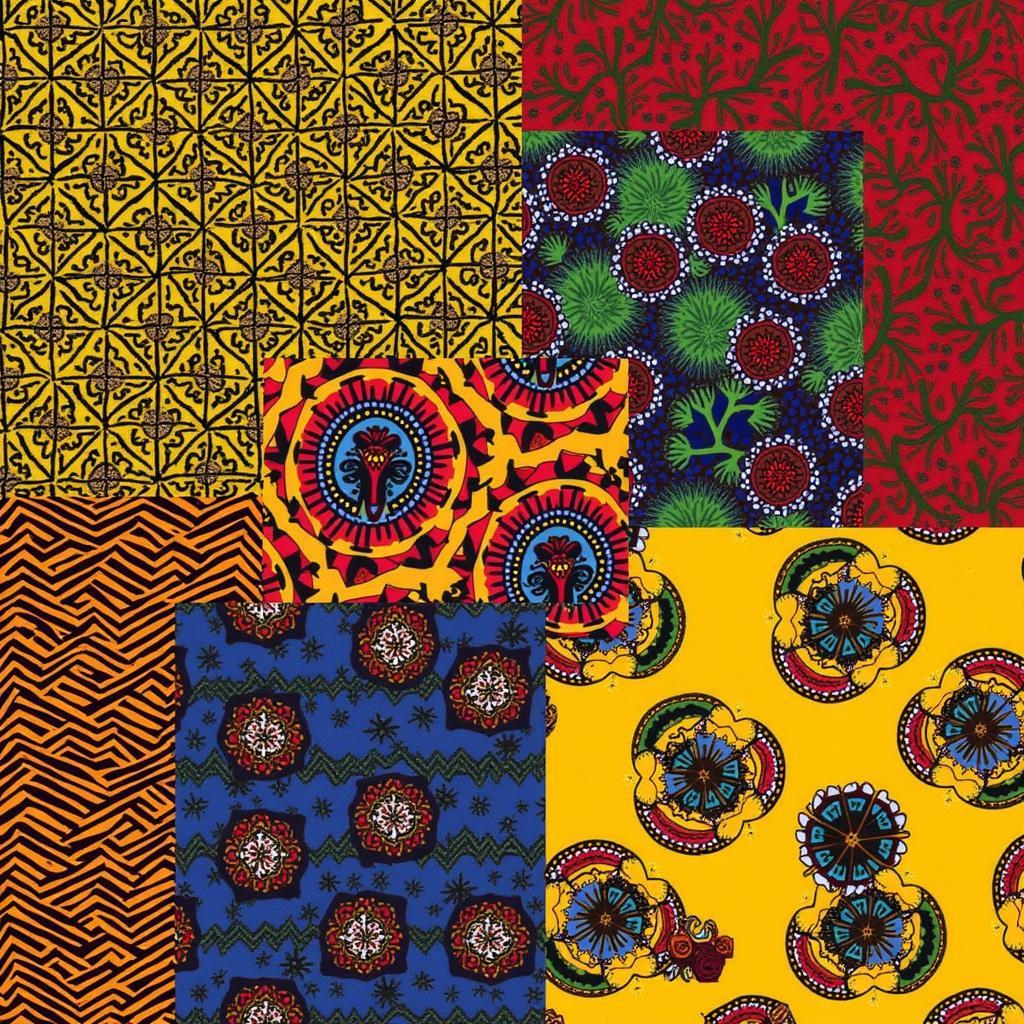African Countries with Gold: A Deep Dive into the Continent’s Golden Landscape
Africa’s golden history runs deep, interwoven with tales of ancient kingdoms and modern mining ventures. This exploration delves into the heart of the continent, uncovering which African Countries With Gold contribute significantly to the global market. We’ll examine not just the quantities extracted but also the impact of gold mining on these nations, both economically and socially.
Unveiling the Top Gold Producers in Africa
Several African nations stand out as significant gold producers, each with its own unique story to tell. South Africa, once the undisputed king of gold mining, still holds substantial reserves. However, other countries like Ghana, Mali, and Burkina Faso have risen as prominent players in the gold industry. Let’s delve deeper into the specific countries and the intricacies of their gold production. After this introductory section, you can learn more about the value of African coins on our sister site. african coins value
Ghana: A Modern Gold Coast
Ghana, known historically as the Gold Coast, continues to live up to its name. It’s currently one of Africa’s leading gold producers, with both large-scale mining operations and artisanal mining playing crucial roles. The government has implemented policies aimed at regulating and formalizing artisanal mining to improve safety and environmental practices.
 Ghanaian Gold Mining Operations
Ghanaian Gold Mining Operations
South Africa: A Legacy of Gold
South Africa’s gold mining history stretches back centuries, shaping the nation’s development and playing a significant role in its economy. While production has declined in recent years, South Africa remains a key player in the global gold market. The industry faces challenges, including aging mines and deep-level extraction, requiring innovative solutions to sustain its golden legacy.
Mali: Gold in the Desert Sands
Mali, a landlocked nation in West Africa, is another major gold producer. Gold is deeply embedded in Mali’s cultural heritage, and artisanal mining has been a traditional livelihood for generations. The government strives to balance the economic benefits of gold extraction with the need for sustainable practices and environmental protection.
Burkina Faso: Emerging Gold Giant
Burkina Faso has rapidly emerged as a major gold producer in recent years, attracting significant foreign investment. The country’s gold mining industry has experienced rapid growth, offering both opportunities and challenges in terms of economic development and environmental sustainability.
Other Notable Gold Producers
Several other African countries contribute to the continent’s gold output, including Tanzania, Sudan, and Guinea. While their production volumes may be smaller compared to the leading producers, they still play an essential role in the overall picture of African countries with gold. Read more about the African gold rates at african countries gold rate.
The Socioeconomic Impact of Gold Mining in Africa
Gold mining in Africa presents a complex tapestry of benefits and challenges. It contributes significantly to national economies, generating revenue and creating employment opportunities. However, it can also lead to environmental degradation, displacement of communities, and social unrest. Finding a balance between economic growth and sustainable development remains a critical challenge.
Economic Benefits and Challenges
Gold exports generate substantial revenue for African countries, contributing to their GDP and foreign exchange reserves. This revenue can be used to fund development projects and improve infrastructure. However, managing these resources effectively and ensuring equitable distribution remains a significant challenge.
Social and Environmental Concerns
Gold mining can have profound social and environmental impacts. Large-scale operations can lead to land degradation, water pollution, and loss of biodiversity. Artisanal mining, while offering livelihoods, often lacks safety regulations and environmental oversight, posing risks to miners and their communities. Explore the vibrant world of African Brocade Silk Fabric at african brocade silk fabric.
Where Does Africa’s Gold Go?
Much of the gold mined in Africa is exported to international markets, primarily to refineries and manufacturers in Europe, Asia, and North America. It is used in a variety of applications, from jewelry and electronics to investment and central bank reserves.
Conclusion: The Future of Gold in Africa
African countries with gold continue to play a vital role in the global gold market. The industry faces significant challenges, but it also holds immense potential for economic growth and development. Sustainable practices, responsible governance, and community engagement are crucial to ensuring that the benefits of gold mining are shared equitably and that its environmental and social impacts are mitigated. The future of gold in Africa lies in finding a balance between maximizing economic opportunities and protecting the continent’s precious natural and human resources. You can also explore the achievements of african footballers in the premier league.
FAQ
- Which African country produces the most gold? Ghana is currently the largest gold producer in Africa.
- What are the main uses of gold mined in Africa? Gold from Africa is used in jewelry, electronics, investment, and central bank reserves.
- What are the environmental impacts of gold mining? Gold mining can lead to land degradation, water pollution, and loss of biodiversity.
- What are the social impacts of gold mining? Gold mining can lead to displacement of communities, social unrest, and health issues for miners.
- How can gold mining be made more sustainable in Africa? Sustainable practices, responsible governance, and community engagement are key to sustainable gold mining.
- What is artisanal gold mining? Artisanal gold mining refers to small-scale, often informal, gold mining activities.
- How does gold mining contribute to African economies? Gold mining generates revenue, creates jobs, and contributes to foreign exchange reserves.
When you need help, please contact Phone Number: +255768904061, Email: [email protected] Or visit us at: Mbarali DC Mawindi, Kangaga, Tanzania. We have a 24/7 customer care team.

